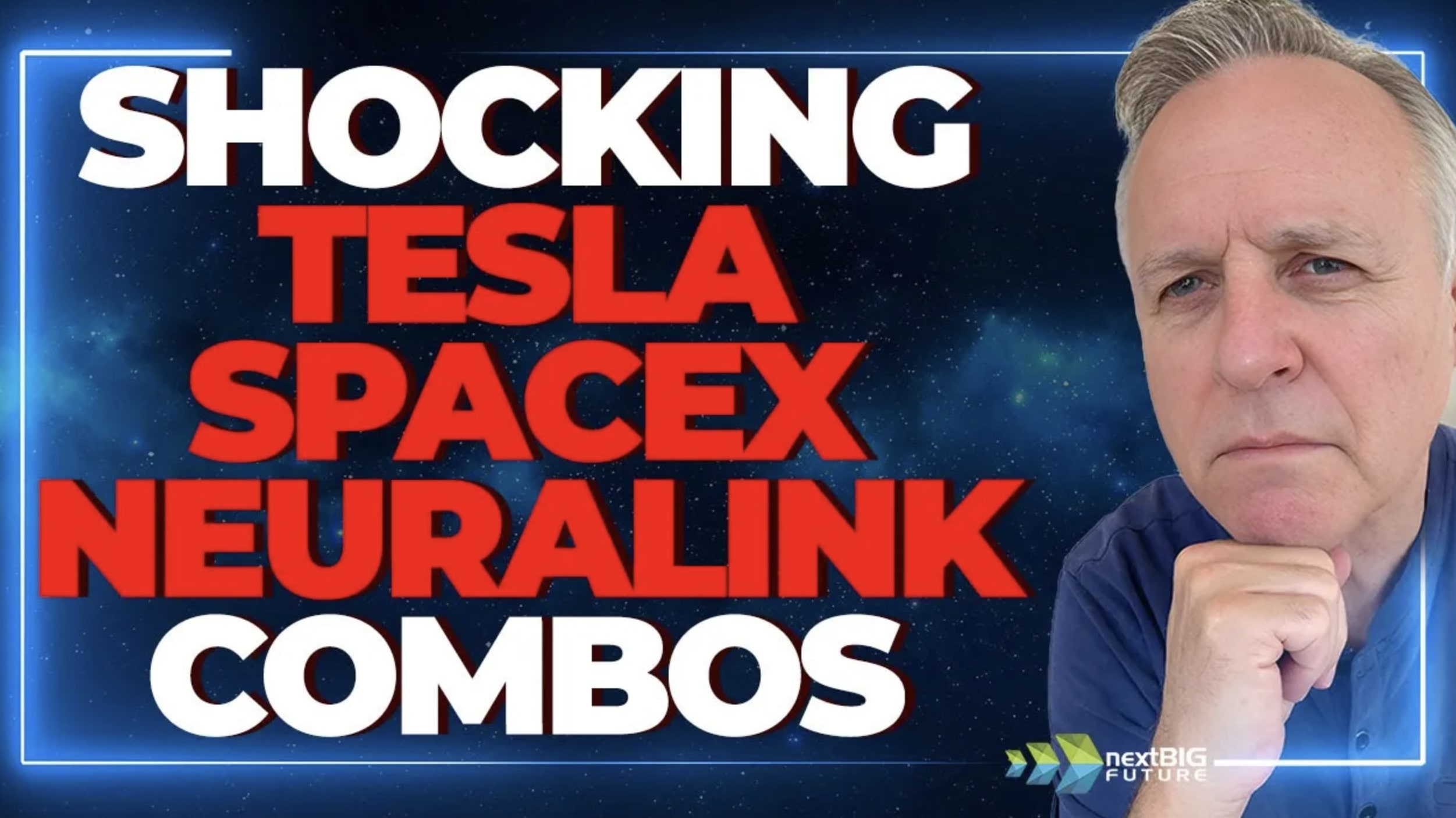The technology of Elon Musk (Musktech) companies will be getting powerful combination products over the next 12 months. The technology products from each individual company are already .
Driver assist operators validating Tesla FSD 12.5 observed the vehicles were using a SpaceX Starlink mini.

Neuralink can connect to devices that use Bluetooth so it could connect to Tesla cars and the Teslabot.
Brian Wang and Randy Kirk discuss the combination products that are expected.

Brian Wang is a Futurist Thought Leader and a popular Science blogger with 1 million readers per month. His blog Nextbigfuture.com is ranked #1 Science News Blog. It covers many disruptive technology and trends including Space, Robotics, Artificial Intelligence, Medicine, Anti-aging Biotechnology, and Nanotechnology.
Known for identifying cutting edge technologies, he is currently a Co-Founder of a startup and fundraiser for high potential early-stage companies. He is the Head of Research for Allocations for deep technology investments and an Angel Investor at Space Angels.
A frequent speaker at corporations, he has been a TEDx speaker, a Singularity University speaker and guest at numerous interviews for radio and podcasts. He is open to public speaking and advising engagements.


I think it should be validating FSD 12.5 not 1.5
Neuralink to change the song on the playlist?
No thanks. I prefer to avoid brain surgery unless really necessary.
The rest are indeed virtuous cycle combinations. At least humanoid robots that can use cars and do chores for you are revolutionary. All supported by omnipresent Starlink network access.
Even the bots will have some kind of 5G access I imagine, but if they have wi-fi from the car AP they can extend their usability to wherever the car goes.
In the long run it will not require surgery at all. Because there’s no way to get it to the masses if everyone has to do invasive surgery.
Yeah, it’s likely going to end up as a wearable of some sort. I’m not sure how that’ll be accomplished. My worry is that those types of things will become a social requirement. No thanks. I like the idea of it as long as it doesn’t become normalized as a requirement.
If you mean mandated as required by law, no way. But I don’t see that happening. I see the USA (and world) defined to two groups (very broad generalization). The information rich, and information poor. There is an interesting caveat about the “information rich”. People with access to the net can tap into a VAST amount of information. Most people however reflexively visit only a few sites, and regularly post on only 1or2. Pattern recognition analytics have shown people go to the same sites over, and over again. Why?
Sociological analysis has revealed most sites people “immerse” themselves in in some way reenforce their POV. This surprises who? Remember how good (effective) propaganda works: It doesn’t try to convince you of something you currently don’t believe. It reenforces what you WANT to believe. Truth is irrelevant. It’s unbelievably difficult, no matter how many verifiable facts are stacked up, to change a persons mindset.
Then again, mindset is part of a persons identity. That’s very intimate. I like this website because it’s interesting. And makes me feel good. See? I do it to.
And the information poor? Their at the mercy of everything they don’t know. The unknown unknown. Yikes